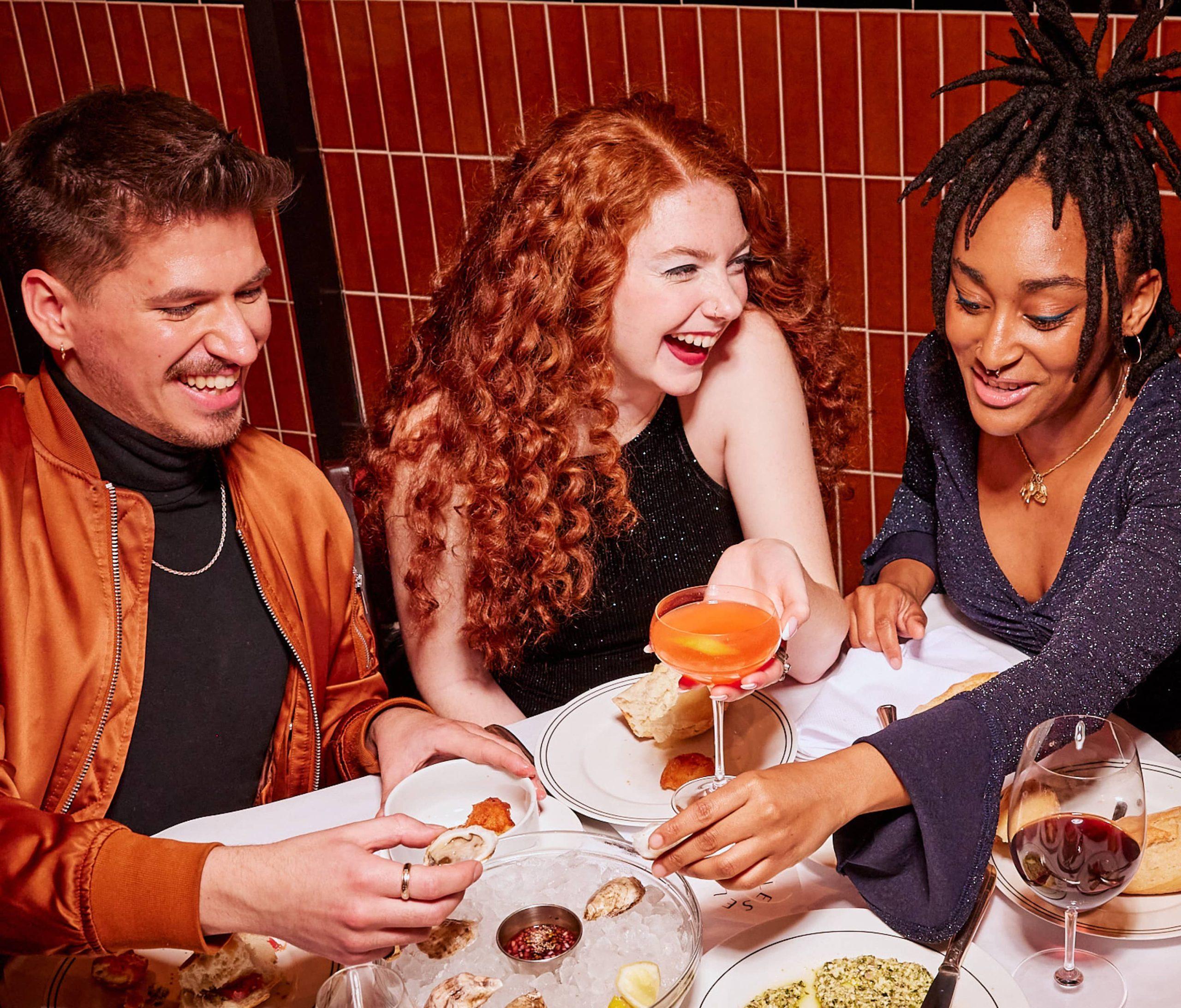Mention to someone you’re a chef, and they’ll think you’re clever with food. Once, this meant they thought of you as a magician of flavour, an inventor of combinations. Now, it can mean something else, too – a certain thoughtfulness towards provenance, a re-found appreciation for the role of a farmer, and a consideration for what’s ethical. All bundled up with the notion that less equals more.
During a discussion at an introduction to the Food Sustainability Media Award held recently, eco chef Tom Hunt responded to a question about the rising cost of food in an economy which can’t afford it. He talked about picking up three ingredients cheaply from Brockley market in south east London, and the joy he was able to get from, not in his words, blending them up and sticking them on a plate. ‘It’s not what I’ve done, it’s what the farmer has produced,’ he said.
It’s true good quality produce, especially the best, should receive the least interference if it’s to be enjoyed properly. But given the context in which Tom was speaking, this addresses another issue just as significant – the global instability of the food system. One of the most astounding statistics talked about was how there are twice as many obese and overweight people in the world than there are those who are starving. ‘Sustainability’ is about a lot of things, but if chefs can put good quality, well-sourced food on a pedestal (as it could be argued they have a responsibility to) in an accessible way, perhaps they can use the dining table as a plateau on which to actively shift the focus to where something is coming from and who it’s benefitting.
As such, it used to be that the farmer and the producer were almost completely hidden behind the scenes. Now he or she is front and centre, listed on the bottom of menus, the subjects of media attention. They’re the heroes we don’t deserve.
In some cases, the farmer is the chef himself. Lake Road Kitchen chef James Cross, heavily influenced by his time behind the Noma pass, has forgone all produce from outside Northern Europe. ‘Things taste better when straight out of the ground and onto the plate,’ James tells BBC Good Food Magazine.
Like Noma (without diving too far into comparisons), his kitchen grows much of its own herbs and veg, which in turn has had dramatic effects on the composition of its dishes. While many chefs will reach for sorrel as something to garnish fish or stir into a sauce, James has other ideas. ‘I tell guests, eat a mouthful – it’s incredible.’
Curation – for lack of a better word – is for the curious. It transcends the plate. The other day, St John rolled out a bar snack of an unbroken gull’s egg alongside a dish of loveage salt. That was it. Certain questions arise – where’s the egg sourced from? It must be in in season? Is it, supposedly, a different product to a hen’s egg beyond its visual appeal? It’s an easy claim that this simple dish can tell more of a story and allows more of a sense of connection to the produce you’re eating than a dish that’s spent months in development, as technically exquisite as it may be.
Does this mean chefs’ creativity is stifled? Isn’t that, after all, why so many decide to do what they do? Perhaps there is the opportunity to be creative in different ways. Street food trader Up In My Grill have made steak and chips interesting again based on little more than immaculate sourcing, wood and charcoal, and their signature chimichurri. When Duck & Waffle hit the scene, its dish of, well, duck leg, waffle, and fried egg – original yet not over complicated – had everyone talking. Perhaps instead, the supposed restraints actually push creativity to its utmost.
As the chef steps away from her duties as a kitchen alchemist, she enters more into the role of the gatekeeper, celebrating good produce rather than fiddling with it. Producers, as are others supplying the food chain, are on board with this – it’s hard to champion good farmers when their produce is stirred imperceptibly into a soup, or thrown into a pie. Given how curating food places such a strong emphasis on quality produce, and is an ethos gathering steam, it says a lot about how we viewed food not that long ago…



